Chris Hedges's Blog, page 104
November 14, 2019
John Roberts Holds Dreamers’ Lives in His Hands
This piece originally appeared on Truthout.
After the arguments before the Supreme Court in the Deferred Action for Childhood Arrivals (DACA) case, it is difficult to predict the outcome. Justices often play devil’s advocate when questioning the lawyers, so reading the tea leaves about how a case will ultimately be decided can be a dicey proposition. But the justices’ questions appeared to indicate that right-wing Justices Alito, Gorsuch and Kavanaugh favor affirming Donald Trump’s termination of DACA, and liberal Justices Kagan, Ginsburg and Sotomayor want to uphold DACA. Justice Thomas, who almost never asks a question during arguments, invariably sides with the right-wingers. Chief Justice Roberts, who generally takes the conservative position, and Justice Breyer, who more often votes with the liberals, were harder to read. Roberts, who appeared to lean toward the government’s position, will likely cast the deciding vote.
On November 12, the justices heard arguments in Department of Homeland Security v. Regents of the University of California, a case that is testing whether Trump’s rescission of DACA was lawful.
Related Articles

Dreamers Tell Trump and SCOTUS They Are Here to Stay
by Sonali Kolhatkar
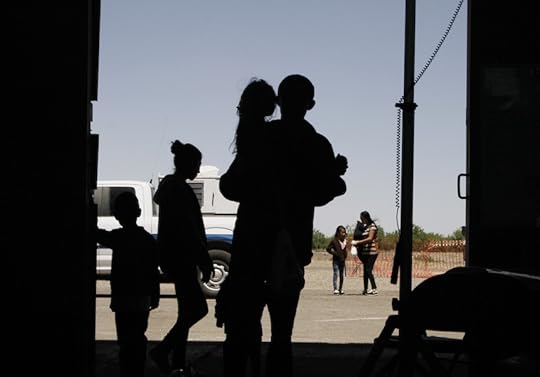
Trump’s Lies Destroy Immigrants’ Lives
by Bill Boyarsky

The Wall Isn't the Worst of Trump's Immigration Policies
by
DACA was created by Barack Obama in 2012 to encourage undocumented people who arrived in the U.S. as children to come out of the shadows and register for temporary protection from deportation. They are called “Dreamers,” inspired by the Development, Relief, and Education for Alien Minors (DREAM) Act, which Congress has failed to pass. Nearly 800,000 Dreamers have work permits and other benefits. Many are lawyers, doctors, engineers and military officers. According to one study, over 90 percent of them are employed and 45 percent are enrolled in school.
To qualify for DACA, a person must be a current student, a high school graduate, have a GED or an honorable discharge from the military. Applicants cannot have prior convictions of serious crimes or be considered a national security threat. The program provides a renewable two-year period of deferred immigration action for people who came to the U.S. as children and continuously lived in the U.S. for at least five years before June 15, 2012.
In September 2017, then-Attorney General Jeff Sessions announced that the Trump administration would rescind DACA, saying, “Such an open-ended circumvention of immigration laws was an unconstitutional exercise of authority by the Executive Branch.”
Several states, DACA recipients and organizations challenged the termination of DACA in the federal courts, successfully arguing it was unlawful. The repeal of DACA was put on hold pending the Supreme Court’s decision.
The two issues facing the Supreme Court are: (1) whether the courts have jurisdiction to review the decision to end DACA; and (2) whether the rescission of DACA was legal.
The government is arguing that the decision of whether to enforce the immigration laws is solely within agency discretion of the Department of Homeland Security (DHS) and not subject to judicial review. Ginsburg pointed out the contradiction in that position: On the one hand, the government says the decision is not subject to judicial review because DHS has sole discretion to end DACA, but on the other hand, it claims that DHS had no discretion because it was illegally established.
Kagan cited another contradiction in the government’s argument, in which it “suggest[s] that the original DACA is reviewable, but the rescission of DACA is not.” She called that “an asymmetry in what’s reviewable.”
Gorsuch said, “I hear a lot of facts, sympathetic facts,” and “they speak to all of us,” but like Alito, he did not seem to think the case was reviewable.
Breyer appeared to be on the fence. “I’m saying honestly I am struggling,” he said. But Breyer also challenged the government’s argument that it has prosecutorial discretion to decide whether to enforce the immigration laws. Breyer distinguished a prosecutor’s decision whether to charge an individual from the policies of an agency.
If the Supreme Court finds it has authority to review the government’s decision to rescind DACA, it must then decide whether the rescission was lawful.
Those challenging the DACA rescission argued that DHS did not sufficiently consider the Dreamers’ reliance interests when it decided to terminate DACA. People outed themselves as undocumented to apply for DACA in reliance on its promise of protection from deportation. Theodore Olson, the lawyer for the individual challengers, said, “Those reliance interests were engendered by the decision of the government that caused people to come forward.”
Breyer cited a Justice Scalia opinion saying that when an agency’s “prior policy has engendered serious reliance interests, it must be taken into account.” Breyer added, “That’s this case, I think.” He mentioned 66 health care organizations, three labor unions, 210 educational institutions, six military organizations, three home builders, five states, 108 municipalities and cities, 129 religious organizations and 145 businesses, most of which, Breyer said, listed reliance interests. In other words, these groups are relying on the Dreamers whose study and work they depend upon.
There was also discussion of the Dreamers’ reliance on Trump’s statements that they would be protected. Trump praised the Dreamers in February 2017, calling most of them “absolutely incredible kids.” Hepromised, “We are gonna deal with DACA with heart.”
Last fall, Trump tweeted, “Does anybody really want to throw out good, educated and accomplished young people who have jobs, some serving in the military? Really!”
When Sessions announced that DACA would be repealed, Trump delayed enforcement for six months, giving Congress time to act to protect the Dreamers. But immigration reform has eluded Congress for years.
“There’s a whole lot of reliance interests that weren’t looked at, including … the current president telling DACA-eligible people that they were safe under him and that he would find a way to keep them here,” Sotomayor noted. But the administration’s position is tantamount to “I’ll give you six months to destroy your lives,” Sotomayor said.
Roberts told Olson, however, “the whole thing was about work authorization and these other benefits. Both administrations have said they’re not going to deport the people. So, the deferred prosecution or deferred deportation, that’s not what the focus of the policy was.”
When questioning Michael Mongan, an attorney for the state challengers, Roberts mentioned the 2016 case in which he voted with right-wing justices to block another Obama order, Deferred Action for Parents of Americans (DAPA). Since Scalia had just died, the case deadlocked 4 to 4, leaving in place a Fifth Circuit Court of Appeals decision ending DAPA. “Look,” Roberts said, “I’ve got a decision from the Fifth Circuit that tells me this is illegal, it’s been affirmed by the Supreme Court by an equally divided vote.”
In 2017, Elaine Duke, acting director of the DHS, issued a cursory memo announcing the end of DACA. It included no policy reasons. The following year, Kirstjen Nielsen, the new DHS director, issued another memo affirming the Duke memo and stating policy reasons.
Breyer cited “a foundational principle of administrative law that a court may uphold agency action only on the grounds that the agency invoked when it took the action,” concluding therefore that the court should only consider the Duke memo. By contrast, Kavanaugh invoked the Nielsen memo, which he said contains “sound reasons of enforcement policy to rescind the DACA policy.”
Ginsburg called the Nielsen memo “infected” by the view that the program was illegal, arguing that Nielsen would not necessarily have come to the same conclusion if there had been “a clear recognition that there was nothing illegal about DACA.”
Roberts, who cast conflicting votes in two recent immigration cases, is the wild card here. Together with the four other right-wing justices, he provided the fifth vote to uphold Trump’s Muslim Ban. But he sided with the four liberals to halt Trump’s use of the citizenship question on the 2020 census, writing for the majority that the government’s stated reason for including it was “contrived.”
Roberts wrote, “Altogether, the evidence tells a story that does not match the explanation the [Commerce] Secretary gave for his decision.” He could adopt the same reasoning in the DACA case and agree with Olson and Mongan that the case should be sent back to DHS to determine the actual cost of ending DACA and provide a reasoned legal analysis.
The chief justice must be mindful of the legacy of his court, which would include stripping DACA protection from nearly a million members of society if he votes with the right-wing justices.
The Supreme Court will announce its decision by the end of June 2020.

November 13, 2019
Dreamers Tell Trump and SCOTUS That They Are Here to Stay
The Supreme Court on Tuesday heard oral arguments in a legal challenge being brought against President Trump’s decision to end the Deferred Action for Childhood Arrivals (DACA) program. DACA, enacted by President Barack Obama in 2012, enabled roughly 800,000 young, undocumented people to defer their deportations and live and work in the U.S.
Dozens of DACA recipients watched Tuesday’s proceedings in the nation’s highest court. They traveled to the Supreme Court on foot, marching 230 miles over 18 days from New York to Washington, D.C., to call attention to the case and show their faces to the justices who will decide their fates. When the young “Dreamers,” as they have been dubbed, emerged from the court to meet hundreds of pro-immigrant supporters gathered outside, the crowd erupted into chants and cheers.
Among the DACA recipients at court was Esther, a young community organizer of Korean background who prefers to use her first name only. Esther works with the National Korean American Services and Education Consortium and was one of the lead organizers of the #HomeIsHere march from New York to D.C. About a week into the march, she spoke with me from the basement of a church in Pittsburgh, where marchers had stopped to rest. Esther explained that the Dreamers marching with her hailed from all over the country and are concerned not just with DACA but with TPS, the program that confers temporary protection status to those fleeing disasters. (As with DACA, Trump has attempted to decimate the TPS program.)
As an undocumented immigrant, Esther might be expected to remain in the shadows, keep her head down, and not risk her vulnerable position in the country. But, as she put it, “We always believed in the power of story.” Esther and her fellow marchers have been telling their stories for years now and have refused to await their fate silently. Their organizing has worked.
“We know that more than 80% of the American public supports DACA right now, and that’s because of the remarkable courage and bravery that’s been shown by the undocumented community to risk their security and share with neighbors, friends and loved ones their stories and what it’s been like to be undocumented in this country,” she said.
In 2012, when DACA was unveiled, it was not a gift from the Obama administration so much as the culmination of Dreamers marching and organizing for years for the DREAM Act. Young people who had lived in the U.S. for most of their lives had begun “outing” themselves as undocumented and telling their life stories in an effort to put human faces to what might otherwise have been viewed by American citizens as an abstract issue.
It was just about nine years ago that the House of Representatives passed the DREAM Act. The Republican-controlled Senate promised to filibuster the popular bill, and in December 2010, as undocumented youths watched with bated breath, five Democratic senators voted with Republicans to deny the 60 votes needed for a filibuster-proof approval of the bill. The final vote tally of 55 to 41 crushed the dreams of the young undocumented people for whom the U.S. was the only country they had called home. It was only after the DREAM Act failed in the Senate that Obama took executive action to create the DACA program in 2012, enabling a fraction of the millions of undocumented people in the U.S. to live and work without fear of deportation.
Along came Trump in 2017, and about six months into his tenure, a president who had campaigned on the criminalization and demonization of immigrants ended DACA. The action was immediately challenged legally, and one after another, lower courts have affirmed the program. Now, it is before the Supreme Court, where justices will determine whether its termination was lawful. Hours before the court heard arguments, Trump repeated a claim on Twitter that he has often made, without evidence: “Many of the people in DACA, no longer very young, are far from ‘angels.’ Some are very tough, hardened criminals.” He then inexplicably added, “If Supreme Court remedies with overturn, a deal will be made with Dems for them to stay!” (Which begs the question: If they are truly hardened criminals, as he maintains, why would he make a deal for them to stay?)
Esther is counting on justices recognizing the humanity of the people whose lives are at stake. “I really believe that despite the Supreme Court being seen as an apolitical institution, the justices are people who can see, hear and feel the widespread support that exists for this program,” she said. Reports suggest that the court is split along predictably partisan lines, and that Chief Justice John Roberts will be the closely watched swing vote in a ruling that is expected next spring.
The same week the Supreme Court heard arguments in the DACA case, a trove of emails by Trump’s leading immigration adviser, Stephen Miller, was leaked online. Miller, considered the architect of Trump’s immigration policies, communicated with the far-right news site Breitbart in the months before the 2016 election, and, according to the Southern Poverty Law Center’s Hatewatch program, “promoted white nationalist literature, pushed racist immigration stories and obsessed over the loss of Confederate symbols after Dylann Roof’s murderous rampage.” Hatewatch, which reviewed about 900 emails from Miller, found that he focused on a “strikingly narrow” set of issues around race and immigration. Reviewers were “unable to find any examples of Miller writing sympathetically or even in neutral tones about any person who is nonwhite or foreign-born.”
Among the members of Congress calling for Miller’s resignation because of the leaked emails are Reps. Alexandria Ocasio-Cortez and Ilhan Omar, two young women of color, one of them a refugee, who embody exactly the demographics by which Miller appears to feel threatened. Ocasio-Cortez called Miller “Trump’s architect of mass human rights abuses at the border (including child separation & detention camps w/ child fatalities).” Meanwhile, Omar, who came under fire this year for calling Miller a “white nationalist,” repeated her claim, feeling vindicated by the leaked emails that her label was justified.
In the lead-up to Trump’s cancellation of the DACA program, Democratic lawmakers struck a tentative deal with the White House to preserve the program in exchange for tougher immigration enforcement. But Miller pushed Trump to abandon the deal and use the Dreamers as leverage to demand that immigration rates be cut by half. Miller has had his hand in nearly every anti-immigrant policy Trump has promoted, and the leaked emails show that his motivation is based on racist ideas.
Esther explained to me how important the case before the Supreme Court is for hundreds of thousands of people like her. If the court decides that Trump’s cancellation of the program was justified, she says, “It means that DACA recipients will lose their protection from deportation. It means that we will return to being undocumented. The stakes are extremely high.” But she insists that no one—not Trump, Miller or the Supreme Court—can take away her dignity. “I was undocumented once before,” she says. “I would prefer not to be undocumented again, but our community has a lot of power. We found a way to live before, we will continue to find a way to live now. We are still here to stay.”

Facebook Says It Axed 3.2 Billion Fake Accounts in Last Six Months
SAN FRANCISCO—Facebook says it removed 3.2 billion fake accounts from its service from April to September, up slightly from 3 billion in the previous six months.
Nearly all of the bogus accounts were caught before they had a chance to become “active” users of the social network, so they are not counted in the user figures the company reports regularly. Facebook estimates that about 5% of its 2.45 billion user accounts are fake.
The company said in a report Wednesday that it also removed 18.5 million instances of child nudity and sexual exploitation from its main platform in the April-September period, up from 13 million in the previous six months. It says the increase was due to improvements in detection.
Related Articles
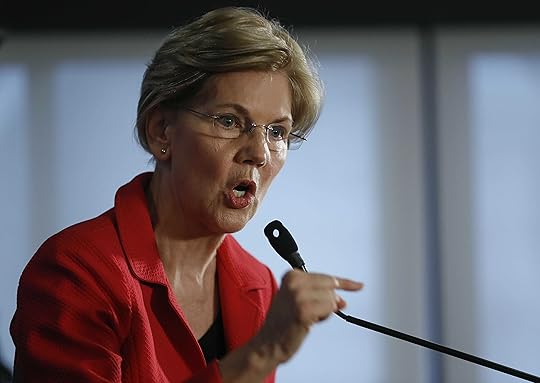
Warren Campaign Beats Facebook's Shady Ad Policies at Their Own Game
by

Facebook Touts Bans While Taking Hate Groups’ Cash
by Ilana Novick

Facebook CEO Cozies up to Conservatives at Private Dinners
by Ilana Novick
In addition, Facebook said it removed 11.4 million instances of hate speech during the period, up from 7.5 million in the previous six months. The company says it is beginning to remove hate speech proactively, the way it does with some extremist content, child-exploitation and other material.
Facebook expanded the data it shares on its removal of terrorist propaganda. Its earlier reports only included data on al-Qaida, ISIS and their affiliates. The latest report shows Facebook detects material posted by non-ISIS or al-Qaida extremist groups at a lower rate than those two organizations.
The report is Facebook’s fourth on standards enforcement and the first to include data from Instagram in areas such as child nudity, illicit firearm and drug sales, and terrorist propaganda. The company said it removed 1.3 million instances of child nudity and child sexual exploitation from Instagram during the reported period, much of it before people saw it.

House Impeachment Panel Tables Motion to Subpoena Whistleblower
WASHINGTON (AP) — The Latest on the House impeachment inquiry of President Donald Trump (all times local):
4:10 p.m.
A motion to issue a congressional subpoena to compel the whistleblower whose complaint led to the House impeachment inquiry to appear behind closed doors has been put off.
Related Articles
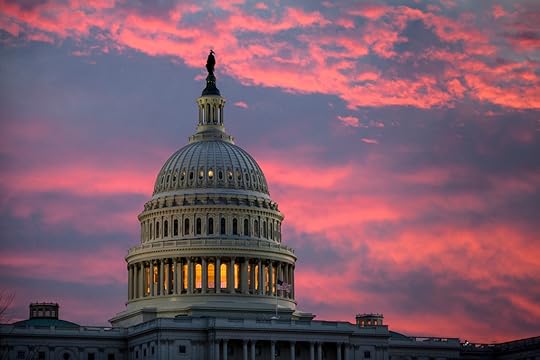
What Happens in the Senate if Trump Is Impeached?
by Bill Blum
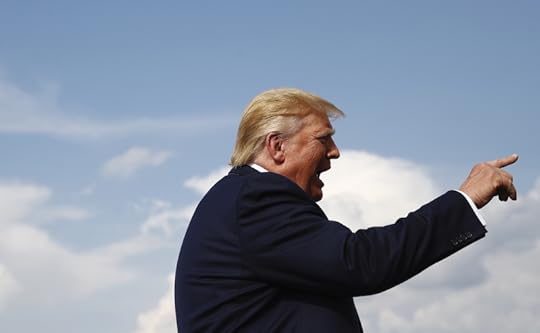
The Real Impeachment Scandal Isn't About Trump
by

Think Capone When It Comes to Trump’s Impeachment
by Bill Blum
House intelligence Committee Chairman Rep. Adam Schiff had said earlier Wednesday that the panel would take up the motion after two diplomats completed their public testimony.
As Schiff proposed tabling the motion, Republican Rep. Mike Conaway of Texas, who had raised the motion earlier in the day, said, “I know you’re afraid of hearing from the whistleblower.”
The committee voted along party lines to table the motion.
The impeachment inquiry was sparked after the whistleblower’s complaint about President Donald Trump’s July 25 telephone call with Ukrainian President Volodymyr Zelenskiy. The complaint alleged Trump pressured the Ukrainian leader to investigate Joe Biden’s family.
__
3:37 p.m.
Testimony in the House’s first public impeachment hearing has ended, with more hearings to come.
State Department officials William Taylor and George Kent testified for more than five hours Wednesday about their concerns with President Donald Trump’s requests that Ukraine investigate Democrats as the U.S. withheld military aid to the country.
Democrats are investigating those requests, and whether they were linked, as they move toward an impeachment vote.
Republicans said the witnesses didn’t have firsthand knowledge and noted the aid was eventually released. The U.S. government released the money after pressure from senators in early September.
Next up will be former U.S. Ambassador to Ukraine Marie Yovanovitch, who was ousted in May on Trump’s orders. She will testify Friday.
Next week, the House Intelligence Committee will hear from eight more witnesses in the impeachment probe.
___
3:30 p.m.
A Republican lawmaker in the House impeachment inquiry into President Donald Trump says the whistleblower is the “one witness” who should be brought in front of the American people.
Rep. Jim Jordan of Ohio says the whistleblower, whose complaint touched off the inquiry, should come before the committee. He says he wants to know the identity of the whistleblower, a CIA officer assigned to the White House.
Jordan earlier complained that the witnesses Wednesday testifying publicly for the first time didn’t have firsthand knowledge of the accusations and never spoke directly to President Donald Trump.
The whistleblower has not been asked to testify.
Democratic Rep. Peter Welch of Ohio said he’d be glad to have the person who started it all testify: “President Trump is welcome to sit right there.”
___
3 p.m.
The two veteran diplomats testifying in the House impeachment hearing are denying President Donald Trump’s accusation that they adamantly oppose him.
Shortly before Wednesday’s House Intelligence Committee hearing began, Trump tweeted, “NEVER TRUMPERS!” He mentioned no evidence.
California Democratic Rep. Eric Swalwell asked both men if Trump’s claim was true.
State Department official George Kent said he’s served under three Republican and two Democratic presidents during his 27 years of service. He said he serves “whatever president is duly elected” and carries out their foreign policies. He oversees U.S. policy in Ukraine and other countries in Eastern Europe and the Caucasus.
William Taylor answered, “No sir.” Taylor is the top U.S. diplomat in Ukraine and was recruited by Secretary of State Mike Pompeo to serve there.
___
2:40 p.m.
Republicans say two State Department witnesses testifying in Democrats’ first impeachment hearing can’t know if President Donald Trump did anything wrong because they haven’t met him.
Ohio Rep. Mike Turner asked diplomats William Taylor and George Kent if either had ever met Trump. Both said they had not.
Democrats are investigating Trump’s requests that Ukraine investigate Democrats as military aid was withheld. Taylor and Kent have said they had concerns about the requests and understood one was conditioned on the other.
Republicans say there’s no case because they are basing their knowledge on secondhand information and because the aid was eventually released. The aid was released following a congressional outcry.
White House Press Secretary Stephanie Grisham tweeted about Turner’s exchange and said “This country deserves so much better.”
___
2:15 p.m.
Republican Rep. Jim Jordan has told the top U.S. diplomat in Ukraine that he is “wrong” to have said there was a clear understanding that President Donald Trump was withholding military aid to Ukraine in exchange for investigations of Democrats.
Jordan was questioning William Taylor during the first public hearing in the House impeachment inquiry.
Taylor has said his understanding was based on conversations with other diplomats. But Jordan said the president of Ukraine never announced an investigation and the aid was eventually released.
The aid was released in September following an outcry in the U.S. Congress.
Jordan mockingly called Taylor the Democrats’ “star witness” and said he’s “seen church prayer chains that are easier to understand than this.”
Taylor responded that he didn’t consider himself a star witness.
___
1:50 p.m.
A lawyer handling the questioning for Republican lawmakers during the impeachment proceedings is suggesting that the Trump administration’s interactions with Ukraine could have been more “outlandish” than they actually were.
Steve Castor asked William Taylor, the top U.S. diplomat in Ukraine, if the “irregular channel” the administration used for outreach to Ukraine was “not as outlandish as it could be.”
Taylor laughed, but then conceded that it was not.
Taylor has described an “irregular channel” in which Ukraine policy was delegated to President Donald Trump’s personal lawyer, Rudy Giuliani, and Gordon Sondland, the ambassador to the European Union, for the purpose of advancing the president’s personal and political interests.
___
1:30 p.m.
Ukraine is playing a starring role in historic U.S. impeachment hearings — but Ukrainians themselves seem more worried about a divisive government plan for land reform.
Ukraine’s day was wrapping up by the time Wednesday’s public hearing started in Washington, and local newscasts focused on a bill that would allow Ukrainians to sell their land for the first time in nearly 20 years. Kyiv residents had strong opinions about that measure, but appeared perplexed by the details of what’s happening in the U.S. Congress.
Ukrainian officials have sought to distance themselves from the impeachment inquiry.
Former legislator Serhiy Leshchenko is among the few following the proceedings closely. He fears that Ukraine may have to wait for next year’s U.S. election to renew normal relations with Washington.
—
1:15 p.m.
The top Republican on the House Intelligence Committee says President Donald Trump “would have a perfectly good reason for wanting to find out what happened” if there were indications that Ukraine meddled in the 2016 presidential election.
California Rep. Devin Nunes is questioning State Department witnesses in the first public hearing in the Democrats’ impeachment probe.
National security officials have told Congress they don’t believe Ukraine meddled in the 2016 election.
Democrats opened the investigation after a whistleblower complaint revealed that Trump had requested that Ukraine investigate political rival Joe Biden and his family and Ukraine’s role in the 2016 election.
Democrats say the requests for politically motivated investigations are impeachable, but Republicans disagree.
___
12:45 p.m.
President Donald Trump says he’s been “too busy” to watch the first public impeachment hearing.
But he told reporters as he meets with his Turkish counterpart in the Oval Office that he’s “sure” he’ll “get a report” from staff on the hearing, which he dismisses as a” witch hunt” and a “hoax.”
Trump is also criticizing the use of staff lawyers to question witnesses. He’s dismissing Daniel Goldman, the investigations chief for Intelligence Committee Chairman Adam Schiff, and Steve Castor, the chief investigative counsel for Republicans, as “television lawyers.”
William Taylor and George Kent are testifying Wednesday in the first public hearing of the House impeachment inquiry.
Investigators are examining whether Trump abused the power of his presidency by pressing Ukraine’s leader to investigate his political rivals.
___
12:15 p.m.
President Donald Trump is calling the public impeachment hearings that kicked off Wednesday the “single greatest scam in the history of American politics.”
Trump is responding to the hearings with a new video directed at his supporters and released by the White House.
Trump says in the video filmed in the White House Rose Garden that Democrats want to take away his viewers’ guns, health care, freedom and votes.
He adds that, “They’re trying to stop me because I’m fighting for you. And I’ll never let that happen.”
Trump has spent the morning responding to the hearing on Twitter. He will be holding a press conference alongside his Turkish counterpart later in the day.
__
12:10 p.m.
The top U.S. diplomat in Ukraine is telling impeachment investigators that detailed notes he took about what he saw as irregular policy in Ukraine may be provided to Congress “sooner or later.”
William Taylor says the notes “may be coming” even though the State Department has so far defied a subpoena to provide documents related to President Donald Trump’s dealings with Ukraine.
Dan Goldman, chief of investigations for the House intelligence panel, responded that they would “welcome” those notes.
Taylor has said that he based his testimony about concerns over the policy on detailed notes, including notepads he kept at his desk and in his pocket. But Trump has directed federal agencies not to cooperate with the impeachment investigation, and Secretary of State Mike Pompeo has said he won’t provide the documents.
Taylor is testifying Wednesday in the first public hearings in the House impeachment inquiry.
___
12:05 p.m.
As the House opens public hearings in its impeachment inquiry of President Donald Trump, it also is continuing the closed-door sessions.
Two more witnesses are expected this week. David Holmes a State Department official, was invited to appear Friday. And Mark Sandy, the associate director for national security programs at the White House Office of Management and Budget, was invited for Saturday.
That’s according to an official working on the impeachment inquiry who was not authorized to divulge details of the closed-door hearings.
It’s not clear they will appear. Some witnesses have, others have not.
House members have heard from several witnesses on whether Trump withheld security aid to Ukraine in exchange for investigations into Joe Biden’s son’s role on the board of a Ukrainian gas company and possible interference in the 2016 U.S. elections.
— By Mary Clare Jalonick
___
11:55 a.m.
William Taylor, the top U.S. diplomat in Ukraine, says that a cellphone conversation his aide overheard between another diplomat and President Donald Trump in July shows that the president cares more about investigations into Democrat Joe Biden than he does about Ukraine.
In Democrats’ first public impeachment hearing, Taylor said “yes, sir” when House Intelligence Committee Chairman Adam Schiff asked him if the importance of that overheard conversation was that Trump cared more about the politically motivated probes he was requesting from Ukraine than he did about the East European ally itself.
Taylor told lawmakers that the unnamed aide had told him about the cellphone conversation he overheard between European Union Ambassador Gordan Sondland and Trump on July 26.
He said he didn’t know about that call when he first testified behind closed doors Oct. 22.
___
11:45 a.m.
The top U.S. diplomat in Ukraine says he thought it was “crazy” and “illogical” for the Trump administration to make military aid contingent on Ukraine announcing investigations into political rival Joe Biden.
William Taylor made the statements in response to questioning from Daniel Goldman, the investigations chief for Rep. Adam Schiff, the Democratic chairman of the House Intelligence Committee.
Taylor said the security assistance was important not only to Ukraine but to America’s own military interests. He said “it made no sense” to withhold that money and was “counterproductive to all of what we had been trying to do.”
Goldman showed Taylor text messages he sent to other diplomats explaining his belief that it was “crazy” to withhold the military aid for political gain.
___
11:40 a.m.
President Donald Trump isn’t watching the public House impeachment hearings against him.
That’s according to Stephanie Grisham, the president’s chief spokeswoman. Grisham tells reporters by email that Trump is participating in meetings in the Oval Office.
She writes: “Not watching. He’s working.”
Trump is scheduled around noon to receive Turkish President Recep Tayyip Erdogan (REH’-jehp TY’-ihp UR’-doh-wahn) for meetings, including a separate gathering with senators invited by the White House. Trump and Erdogan are also slated to hold a joint news conference at the White House.
Trump opened Wednesday by lashing out on Twitter at the inquiry and the two career U.S. diplomats who are testifying.
The inquiry focuses on a July telephone call in which Trump sought to get the leader of Ukraine to investigate Trump’s political rivals.
Trump denies wrongdoing and has described the conversation as “perfect.”
___
11:30 a.m.
The top U.S. diplomat in Ukraine says two other envoys invoked President Donald Trump’s history as a businessman in trying to explain the U.S. relationship with Ukraine.
William Taylor described for lawmakers a September phone call in which Gordon Sondland, the U.S. ambassador to the European Union, told him that Trump is a businessman and that businessmen ask people who owe something to pay up before they write out a check.
He says Kurt Volker used the same language several days later while they were together at the Yalta European Strategy Conference in Ukraine.
Taylor says he told both that the explanation made no sense and that the Ukrainians did not owe Trump anything and that holding up security assistance for domestic political gain was “crazy.”
Taylor is testifying Wednesday in the first public hearings in the House impeachment inquiry.
11:15 a.m.
The top U.S. diplomat in Ukraine says he was told that military aid to Ukraine and a White House visit for the new leader were contingent on a public announcement of investigations.
William Taylor told a House committee investigating impeachment against President Donald Trump that another diplomat, Ambassador Gordon Sondland, said “everything” was dependent on whether Ukraine’s president publicly announced investigations into Joe Biden’s son and potential interference in the 2016 presidential election.
Taylor says he was told Trump wanted the Ukrainian leader “in a public box” by making the statement.
But no statement was ever released.
___
11:12 a.m.
The top U.S. diplomat in Ukraine says his staff recently told him they overheard President Donald Trump speaking on the phone to another diplomat about investigations.
William Taylor made the statement Wednesday in the first public hearing in the House impeachment inquiry.
Taylor says some of his staff were at a restaurant with Ambassador to the European Union Gordon Sondland on the day after the July 25 call between Trump and new leader of Ukraine.
Taylor told the committee that Sondland called Trump from the restaurant and the staff could hear Trump on the phone asking about “the investigations.”
Sondland told the president that the Ukrainians were ready to move forward.
The House is looking into allegations that Trump asked Ukraine to dig up dirt on the son of his Democratic rival Joe Biden and potential interference in the 2016 presidential elections.
Trump has said he did nothing wrong.
___
11: 03 a.m.
The top U.S. diplomat in Ukraine tells House lawmakers investigating impeachment that he noticed there were two policy channels operating with Ukraine, a “regular” and an “irregular” one.
William Taylor says the president’s personal lawyer Rudy Giuliani was guiding requests through the irregular channel, which was unaccountable to Congress.
Taylor says it slowly became clear to him that conditions were placed on Ukraine’s new president.
He had to order investigations into possible Ukrainian interference in the 2016 U.S. election, and also look into Joe Biden’s son Hunter, who sat on the board of a Ukrainian gas company.
Taylor is testifying Wednesday in the first public hearings in the House impeachment inquiry.
___
10:55 a.m.
President Donald Trump’s reelection campaign is trying to turn public impeachment hearings into a fundraising boon.
The campaign has emailed and texted supporters urging them to give.
And they’re setting a fundraising goal of $3 million over the next 24 hours.
Trump and his campaign have been trying to turn the inquiry into a rallying cry for supporters by making the case that it is an attempt by Democrats to invalidate the results of the 2016 election and harm Trump’s chances in 2020.
They’re calling the hearings “fake” and a “TOTAL SCAM.”
One email reads that, “It’s time to make a statement” and “do something so EPIC that even the FAKE NEWS media won’t be able to ignore us while these baseless Witch Hunt Trials go on.”
___
10:50 a.m.
A top State Department official says he never saw any effort by U.S. officials to shield from scrutiny a Ukrainian natural gas company where Hunter Biden sat on the board.
George Kent is testifying Wednesday in the House impeachment inquiry into President Donald Trump.
Investigators are looking into allegations that Trump asked the new Ukrainian president to dig up dirt on the son of Joe Biden, a Democratic political rival.
Hunter Biden sat on the board of the Ukrainian gas company called Burisma. Kent said he raised concerns in 2015 that his status could create the perception of a conflict of interest.
But Kent said he never saw any attempt to shield Burisma from scrutiny because of Biden’s connection to the company.
___
10:45 a.m.
There was an early clash at the first public impeachment hearing over the identity of the whistleblower whose complaint sparked the inquiry.
House Intelligence Committee Chairman Adam Schiff said he would do everything necessary to protect the whistleblower’s identity. Schiff said he would “not permit the outing of the whistleblower.”
Republican Rep. Mike Conaway asked Schiff to subpoena the whistleblower to appear behind closed doors. Schiff said he would consider the request after two diplomats appearing before the committee on Wednesday conclude their public testimony.
The impeachment inquiry was sparked after the whistleblower’s complaint about President Donald Trump’s July 25 telephone call with Ukrainian President Volodymyr Zelenskiy alleged that Trump pressured the Ukrainian leader to investigate Democratic rival Joe Biden’s family.
Schiff said he does not know the whistleblower’s identity.
___
10:42 a.m.
A top State Department official tells a House committee investigating whether President Donald Trump should be impeached that he does not believe the U.S. should ask other countries to engage in “selective, politically associated investigations.”
George Kent, a deputy assistant secretary of state, is testifying Wednesday in the first public hearing. He has already testified in a closed session.
Kent says such “selective actions” undermine the rule of law regardless of the country.
House investigators are looking into allegations that Trump withheld military aid to Ukraine unless the new leadership agreed to investigate the son of Democratic political rival Joe Biden.
Biden’s son sat on the board of a Ukrainian gas company.
___
10:35 a.m.
The top Republican on the House Intelligence Committee says Democrats’ impeachment inquiry is “a carefully orchestrated media smear campaign.”
In his opening statement in the first public House impeachment hearing, California Rep. Devin Nunes says Democrats “turned on a dime” after the investigation into Russian interference in the 2016 election and then focused on Ukraine.
He told the hearing’s two witnesses that he would like to welcome them, but said that Americans’ trust in government has been damaged as “elements of the civil service have decided that they, not the president, are really in charge.”
State Department officials George Kent and William Taylor have told lawmakers they had concerns about Trump’s Ukraine policy.
Nunes said the hearings are “an impeachment process in search of a crime.”
___
10:30 a.m.
House Intelligence Committee Chairman Adam Schiff says “there are still missing pieces” in the impeachment investigation of President Donald Trump.
He notes that the Trump administration has withheld many documents and several witnesses did not appear at Trump’s direction.
Schiff says that will force Congress to consider “whether Trump’s obstruction of the constitutional duties of Congress constitute additional grounds for impeachment.”
He says “this is not what our founders intended.”
___
10:22 a.m.
House Intelligence Committee Chairman Adam Schiff says the impeachment inquiry is a test of “what kind of conduct or misconduct” Americans will expect of their president.
As the first public hearings begin, Schiff is seeking to frame the impeachment inquiry as a choice of what sort of presidential behavior will be tolerated.
Schiff asks if the House finds that Trump abused his power, invited foreign election interference or tried to coerce an ally to investigate a political rival, “must we simply get over it?”
That had been the message of White House chief of staff Mick Mulvaney in a press conference last month, when he said it was normal for the U.S. to place conditions on foreign aid.
Schiff adds: “Is that what Americans should now expect from their president?”
___
10:18 a.m.
House Intelligence Committee Chairman Adam Schiff says the questions at the heart of the impeachment inquiry are simple but also “terrible” to consider.
He says the matter boils down to whether President Donald Trump sought to condition a White House visit or military aid on Ukraine’s willingness to open an investigation into Democratic rival Joe Biden. And if he did, is that “abuse of power” incompatible with the office of the presidency.
Schiff says the answers to those questions will affect not only the future of the Trump administration but also of the presidency itself, and what kind of behavior the American public can expect from the commander in chief.
Schiff spoke Wednesday in opening the first public hearing in the impeachment inquiry.
__
9:25 a.m.
President Donald Trump is lashing out at a pair of witnesses who are set to testify as the House impeachment inquiry goes public.
Trump tweeted “NEVER TRUMPERS!” before Wednesday’s hearing opened on Capitol Hill with testimony from William Taylor, the charge d’affaires in Ukraine, and George Kent, a career diplomat. Trump sought to undermine Kent and Taylor with the tweet suggesting they are among members of the foreign policy establishment that never supported him.
Taylor and Kent worked for Republican and Democratic administrations. There’s no evidence they engaged in partisan activity opposing Trump.
The impeachment inquiry centers around a July 25 telephone call Trump had with Ukraine’s leader and Trump’s attempt to pressure the government to investigate his political rivals.
Trump maintains that the telephone conversation was “perfect” and that he did nothing wrong in his relations with Ukraine.
The Republican president also tweeted Wednesday: “READ THE TRANSCRIPT!”
___
8:40 a.m.
The Kremlin has drawn a parallel between the impeachment proceedings against President Donald Trump and accusations of Russia’s interference in his election.
Asked about the hearings opening Wednesday, Russian President Vladimir Putin’s spokesman Dmitry Peskov responded that “there are a lot of things far-fetched.”
Peskov compared the proceedings to the U.S. claims of Russian interference in the 2016 U.S. presidential election, which he described as having “little relation to reality.”
The Kremlin has shrugged off special counsel Robert Mueller’s exposure of Russian interference in the vote.
Mueller found there wasn’t enough evidence to establish a conspiracy between Trump’s campaign and Russia. But Mueller charged 12 Russian military intelligence officers with breaking into Democratic Party computers and the email accounts of officials with Hillary Clinton’s campaign.
Democrats are looking into Trump’s pressure on Ukraine to investigate his rival Joe Biden’s family. Trump calls the impeachment proceedings a “scam.”

Israel Intensifies Strikes as Rockets Rain Down on Gaza
GAZA CITY, Gaza Strip—Israeli aircraft struck Islamic Jihad targets throughout the Gaza Strip on Wednesday while the militant group rained scores of rockets into Israel for a second straight day as the heaviest round of fighting in months showed no signs of ending. The death toll rose to 26 Palestinians, including a 7-year-old boy and two other minors.
The U.N.’s Mideast envoy, Nickolay Mladenov, rushed to Cairo to work with Egyptian mediators on arranging a truce. An Islamic Jihad delegation was also expected in Egypt “very soon,” an Egyptian intelligence official said, speaking on condition of anonymity because he was not authorized to talk to the media.
“I am very concerned about the ongoing and serious escalation between Palestinian Islamic Jihad and Israel,” Mladenov said. “The U.N. is working to urgently de-escalate the situation.”
Related Articles

Israel Is Disappearing the Proof That It Oppresses Palestinians
by

Israel’s Stranglehold on American Politics
by Chris Hedges
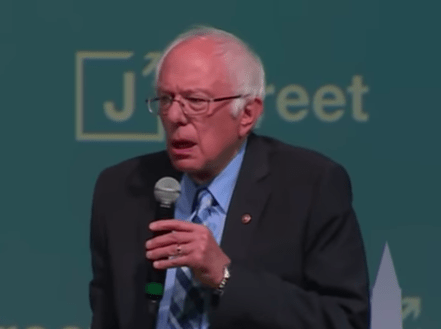
Bernie Sanders Refuses to Bow to Israel
by Juan Cole
Islamic Jihad leader Ziad al-Nakhalah said in an interview late Wednesday that his group was ready for a cease-fire if Israel accepted “conditions,” including a halt to targeted killings of Palestinian militant leaders.
“If we reach an agreement, I can even announce a cease-fire over the phone,” he said.
The fighting erupted early Tuesday after Israel killed a senior commander in the Islamic Jihad militant group, along with his wife, as they slept in their Gaza home. Israeli officials say Bahaa Abu el-Atta was responsible for numerous rocket attacks and was plotting a large-scale border infiltration.
Islamic Jihad, an Iranian-backed militant group sworn to Israel’s destruction, responded by launching dozens of rockets toward Israel, some reaching as far as Tel Aviv, prompting Israel to carry out scores of airstrikes.
The rocket fire brought much of Israel to a standstill. Schools closed throughout southern Israel, people stayed home from work and large public gatherings were banned. Air raid sirens wailed during the day and into the evening. By Wednesday night, the army said 360 rockets had been fired at Israel.
In Gaza, schools and public institutions also were closed for a second day and there were few cars on the streets, with people mostly staying indoors. After nightfall, Gaza City resembled a ghost town, with streets empty and the whooshing sounds of outgoing rockets and explosions of Israeli airstrikes heard. Virtually the only vehicles on the roads were wailing ambulances.
Convening Israel’s top security officials, Prime Minister Benjamin Netanyahu said he hoped the fighting would end quickly.
“We are not bent on escalation but we will do whatever is necessary to restore the quiet and security to the residents of Israel, including the residents of the south,” he said.
Hamas, the larger and more powerful militant group that controls Gaza, has so far avoided entering the fray — a possible sign the violence could be brief.
Hamas, which has fought three wars with Israel, has a much more lethal arsenal than Islamic Jihad. But as the governing authority in the territory, it also is more pragmatic and appears to have little desire for more fighting at a time when Gaza’s economy is in tatters.
That could change if the fighting drags on and the death toll continues to climb. Palestinian health officials reported 26 dead from Israeli airstrikes, including at least 16 militants. Five civilians, including a woman and boys ages 17, 16 and 7, were among the dead. The identities of the others killed were not immediately known.
In the southern town of Khan Younis, the military fired a nonexplosive warning shot at the two-story home of the Zourob family late Tuesday to make them evacuate. Israel says the tactic, known as a “knock on the roof,” is meant to minimize casualties before a target is hit.
On Wednesday, Najab Zourob sat on the debris of her former home, next to a bomb crater, as her children tried to salvage belongings. She said she had no idea why their house had been targeted. “We don’t have any relations with any factions,” she said.
Lt. Col. Jonathan Conricus, an Israeli military spokesman, said the army was limiting its strikes to Islamic Jihad targets and avoiding conflict with Hamas to prevent an escalation.
“However, it’s very clear that if there will be Israeli casualties, the situation would change drastically and we would be forced to respond in a different manner,” he said.
Israeli tanks, armored vehicles and artillery batteries took up positions along the Gaza border.
No Israeli deaths were reported, in part because of Israel’s Iron Dome defense system, which the military said has a 90% success rate when deployed.
A few homes suffered direct hits, though, and there was a near miss on a major highway, where a rocket crashed just after a vehicle passed. In all, three people suffered slight wounds from shrapnel or shattered glass caused by rocket fire, medical officials said.
Israel’s strikes against Islamic Jihad marked the latest manifestation of a spreading battle between Israel and Iranian proxies in the region.
Iran has forces based in Syria, Israel’s northern neighbor, and supports Hezbollah militants in Lebanon. In Gaza, it supplies Islamic Jihad with cash, weapons and expertise.
Netanyahu also has claimed Iran is using Iraq and far-off Yemen, where Tehran supports Shiite Houthi rebels at war with a Saudi-led coalition backing the government, to plan attacks against Israel. Hamas also receives some support from Iran.
Israel frequently hits Iranian interests in Syria. But on Tuesday, Syrian officials said an Israeli airstrike targeted a senior Islamic Jihad militant in Damascus, a rare assassination attempt of a Palestinian militant in the Syrian capital. Israel did not comment on the airstrike, which missed the militant but killed two of his relatives.
Despite the disruption to daily life, there appeared to be widespread support in Israel for the targeting of Abu el-Atta.
Still, some opposition figures suggested the timing could not be divorced from the political reality in Israel, where Netanyahu leads a caretaker government while his main challenger, former military chief Benny Gantz, is trying to build his own coalition government.
With their parties unable to secure parliamentary majorities following a September election, the two rivals have both come out for a unity government. But each demands to be its leader, leaving political paralysis.
The Gaza fighting could force them into a partnership. Gantz has praised the airstrike, saying he was briefed ahead of time and has continued to receive updates.
A successful military operation could bolster Netanyahu as he seeks to retain power — especially if he is indicted on corruption charges.
Israel’s attorney general is to decide in the weeks ahead whether to indict Netanyahu, which would increase pressure on him to step down. He has sought to portray himself as being the most capable of steering the country through its many security challenges.
___
Federman reported from Jerusalem. Associated Press writer Samy Magdy in Cairo contributed.

Venice ‘on Its Knees’ After Worst Flood in 5 Decades
VENICE, Italy—The worst flooding in Venice in more than 50 years prompted calls Wednesday to better protect the historic city from rising sea levels as officials calculated hundreds of millions of euros in damage.
The water reached 1.87 meters (6.14 feet) above average sea level Tuesday, the second-highest level ever recorded in the city and just 7 centimeters (2½ inches) lower than the historic 1966 flood. Another wave of exceptionally high water followed Wednesday.
“Venice is on its knees,’’ Mayor Luigi Brugnaro said on Twitter. “St. Mark’s Basilica has sustained serious damage, like the entire city and its islands.”
Related Articles

Climate Change Is Already Hitting Europe Harder Than Anyone Expected
by
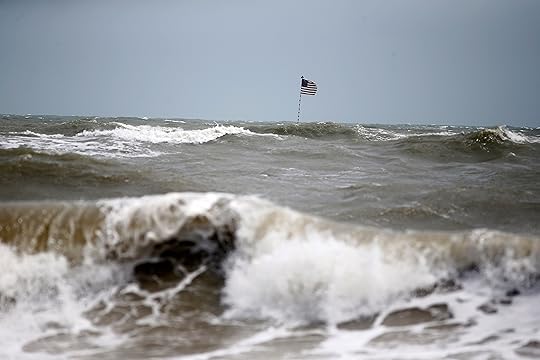
An Unlikely Weapon in the Fight Against Climate Change
by

It's Now Impossible to Deny Who Caused Climate Change
by
One death was blamed on the flooding, on the barrier island of Pellestrina. A man in his 70s was apparently electrocuted when he tried to start a pump in his dwelling, said Danny Carrella, an official on the island of 3,500 inhabitants.
In Venice, the crypt beneath St. Mark’s Basilica was inundated for only the second time in its history. Damage was also reported at the Ca’ Pesaro modern art gallery, where a short circuit set off a fire, and at La Fenice theater, where authorities turned off electricity as a precaution after the control room was flooded.
Italy’s culture minister, Dario Franceschini, said no damage had been reported to art collections in museums throughout the city. Many sites remained closed to tourists, and La Fenice canceled concerts Wednesday and Thursday evening.
Tourists floated suitcases through St. Mark’s Square, where officials removed walkways to prevent them from drifting away. Wooden boards that shop and hotel owners have placed on doors in previous floods couldn’t hold back the water.
The water was so high that nothing less than thigh-high boots afforded protection, and one man was even filmed swimming bare-chested in St. Mark’s Square during what appeared to be the height of the flood.
“I have often seen St. Mark’s Square covered with water,’’ Venice’s patriarch, Monsignor Francesco Moraglia, told reporters. “Yesterday there were waves that seemed to be the seashore.”
Brugnaro said damage would reach hundreds of millions of euros. He called on Rome to declare a state of emergency.
“We are not just talking about calculating the damages, but of the very future of the city’’ Brugnaro told reporters. “Because the population drain also is a result of this.”
He described “untold damages, to houses, shops, activities, not to mention monuments and works of art. We risked our lives as well.”
The flooding was caused by southerly winds that pushed a high tide, exacerbated a full moon, into the city.
Rising sea levels because of climate change coupled with Venice’s well-documented sinking make the city built amid a system of canals particularly vulnerable. The sea level in Venice is 10 centimeters (4 inches) higher than it was 50 years ago, according to the city’s tide office.
Damage included five ferries that serve as water buses, a critical means of transportation. Photos on social media showed taxi boats and gondolas grounded on walkways flanking canals.
Brugnaro blamed climate change for the “dramatic situation” and called for a speedy completion of a long-delayed project to construct offshore barriers.
Called “Moses,” the moveable undersea barriers are meant to limit flooding. But the project, which has been opposed by environmentalists concerned about damaging the delicate lagoon ecosystem, has been delayed by cost overruns and corruption scandals, with no launch date in site.
Luca Zaia, governor of the Veneto region, told SkyTG24 that the barriers were almost complete, but it wasn’t clear if they would work against such flooding.
“Despite 5 billion euros under water, St. Mark’s Square certainly wouldn’t be secure,’’ Zaia said, referring to one of Venice’s lowest points, which floods when there is an inundation of 80 centimeters (2.6 feet).
Zaia also expressed concern about snowfalls in the mountains above Venice, where up to 1.2 meters (4 feet) was expected.
Across the Adriatic Sea, an intense storm with powerful winds caused floods in towns in Croatia and Slovenia.
In the Croatian town of Split, authorities said the flooding submerged the basement area of the Roman-era Diocletian’s Palace, where emergency crews battled to pump out the water.
Hydrographic Institute Croatia said sea levels on Wednesday in Split and Ploce were the highest since 1955, when monitoring started.
___
Colleen Barry reported from Milan. Jovana Gec in Belgrade also contributed.

Is Trump the Most Corrupt President in American History?
What follows is a conversation between former whistleblower Bill Black and Marc Steiner of The Real News Network. Read a transcript of their conversation below or watch the video at the bottom of the post.
MARC STEINER: Welcome to The Real News. I’m Marc Steiner. Great to have you all with us.
The impeachment hearings are scheduled to begin tomorrow. What could be the Republican defense? I think it was well articulated by Louisiana Senator John Kennedy on Face the Nation this past Sunday.
Related Articles
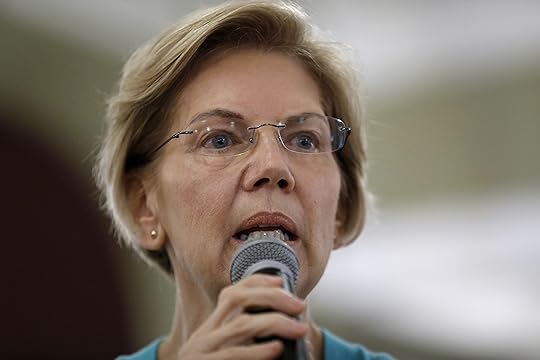
Elizabeth Warren Decries Trump as 'Corruption in the Flesh'
by

Cronyism and Corruption Gave Us Today's CIA
by
JOHN KENNEDY: The quid pro quo, in my judgment, is a red herring. Here are the two possible scenarios. Number one, the president asked for an investigation of a political rival. Number two, the President asked for an investigation of possible corruption by someone who happens to be a political rival. The latter would be in the national interest. The former would be in the President’s parochial interest and would be over the line.
I think this case is going to come down to the president’s intent, his motive; did he have a culpable state of mind? For me, Margaret, there are only two relevant questions that need to be answered. Why did the president ask for an investigation?
MARGARET BRENNAN: Mm-hmm.
JOHN KENNEDY: Number two–and this is inextricably linked to the first question–what did Mr. Hunter Biden do for the money?
MARC STEINER: So the Republicans are searching for a defense, but what do they really have? Is there a there there? Many progressives argue that there is no there there with Ukrainegate or “quid pro quo.” Is that real? Republicans are panicking. And on the verge of public impeachment hearings, some argue politically that impeachment might enhance Trump’s chance of victory in 2020; others saying no effect at all, we don’t know any of that. Others support this is the only way to oust him and consider him the most corrupt president in U.S. history.
Some would say, “There are three things.” In one article on Slate: “It’s sex, power and money that are the downfall of the powerful.” Is that the case here? Trump may have all three, but what’s going on here? And what is that there there, that the impeachments will base their work on? We’ll examine how all this corruption may play out, what it might mean and realize ahead of this impeachment hearings. And is it really a precedent for any of this at all? What did we learn from the past?
We’re joined once again by Bill Black, who is associate professor of economics and law at the university of Missouri, Kansas City. He is a white collar criminologist, former financial regulator, author of The Best Way to Rob a Bank is to Own One. And Bill, welcome back. Good to have you with us.
BILL BLACK: Thank you.
MARC STEINER: So what’s your first reactions to Senator Kennedy?
BILL BLACK: Um…
MARC STEINER: That’s what I thought it would be. I knew that was going to be your answer.
BILL BLACK: You see, all you have to say is that “I’m using the power of the United States government to attack at my political opponent because I really think that my political opponent is a bad person,” and then it’s okay; it’s completely kosher. No, that’s not right. Even as a technical matter of law, in fact, this is precisely the kind of thing that the founding fathers cited in the Federalist Papers and such as their great fear, the use of the power of the office for personal gain, particularly in circumstances where one might be making foreign powers happy.
Indeed, one of the earliest impeachments in the history of the United States was for a federal official who was, in that case, involved in machinations with the United Kingdom against the United States of America. So if they try to make that their legal defense, it will fail. But of course law has its limits in the impeachment process, which ultimately is inherently a political act as well.
MARC STEINER: So what do you say to those, even some progressive voices and maybe talk to a few later this week, who would say that there is no real quid pro quo there that this is Ukraine-gate is just kind of nothing. It’d be like Russia-gate. It’s all a waste of time and it’s not getting to the heart of the issue or how do you respond to that when you look at what’s going on around?
BILL BLACK: Trump’s corruption is, I think, in many ways the heart of the issue. He is the most corrupt president in the history of the United States and it’s not even close. Harding and Grant had been relegated to footnotes in history of U.S. corruption. And on top of that, he is the most pro corruption president of any president of the United States.
MARC STEINER: What does that mean?
BILL BLACK: So for example, he came into office with the express goal of weakening as much as possible, the foreign corrupt practices act and the Foreign Corrupt Practices Act is a statute against the bribery of foreign public officials by United States persons, right? Typically, business types. Now, this is one of the best things that we ever adopted. The Foreign Corrupt Practices Act. The Europeans mocked us when we did it originally over 20 years ago saying, “Corruption is the way of the world and you’re just not going to be able to compete with us, you fools.”
In places like Germany, you could not only bribe foreign officials; you could openly declare it as a tax expense on your income tax returns for the corporation. But that changed in the OECD, Organization of Economic Cooperation and Development. Essentially the top 30-ish economies now mandates that you have some version of the Foreign Corrupt Practices Act. Trump as a businessperson hated the act and came into this office determined to weaken it wherever possible. And the administration is weakening it.
MARC STEINER: Now, let me ask you a quick question. It is just to describe something for our viewers for a moment. When you say he weakened it, and when he came in specifically one of the things he wanted to do was to do that, how has he weakened it? What do you mean? Detail that just a little bit for us.
BILL BLACK: So it, it’s in multiple ways but the largest single way is that they’ve redirected enforcement towards minor cases and towards minor penalties. So, that pretty much does it in terms of the Foreign Corrupt Practices Act. They’ve made it a very process oriented as opposed to actually putting the people that bribe public officials, the powerful ones, in prison as we used to do. But on top of that, Attorney General Barr is noted for one thing in particular, historically. He is a leading opponent of the False Claims Act. The False Claims Act allows Americans to bring actions on behalf of the U.S. Government when people through corrupt means are defrauding the United States of America.
So this is whistleblowers. And as you can see, the administration despises whistleblowers because they are the scourge of powerful corruption. And so Barr excoriated whistleblowers as low lives that needed to be crushed and that we should get rid of the entire statute, which by the way was adopted in the Civil War under President Lincoln as a means of preventing corrupt corporations from by bribing public officials to make a fortune. In the case of you Ukraine, you have direct corruption as the goal of the administration. So you have the treasury secretary openly putting cronies who are major political donors to him on the board of Ukrainian oil corporations, which I thought was the criticism of Biden’s side.
And then you have Giuliani with these “associates” who are also under indictment for personal corruption in all of this, in which Giuliani and others are refusing to testify as to what in God’s name they were using their power to try to accomplish. But these folks are indeed very well known. And again, the Department of Justice, the U.S. Attorney’s Office for the Southern district of New York in the indictment has said that they are working in league with organized criminals–leading organized criminals at that–from Russia.
MARC STEINER: And then you have Lev Parnas and Igor Fruman, who are working with Rudy Giuliani, the two Ukrainians who are involved with the mob and money. They went there to say, “Go after Biden and give us some more money.”
BILL BLACK: They went there on an anti-corruption mission, right?
MARC STEINER: Right.
BILL BLACK: So this is hilarious. So whatever Trump does or accuses anyone of doing, just like Charles Keating back in the day used to accuse us as regulators of doing the things type of things that he did. He was convinced that the only reason we could be standing up to his crimes was because we must be a short selling his stock because of course that’s what he would have done as a regulator. Of course, it never entered our minds to try to do any such things. But that’s what he always accused people of, precisely the kinds of things–securities fraud in his context–that he was doing. And so Trump instantly goes to corruption because that is what he does. Indeed, just he settled the case in which he ripped off the charities.
MARC STEINER: Right? Exactly.
BILL BLACK: So this is a profoundly corrupt person whose instinct is always to corrupt the system.
MARC STEINER: So a couple of questions, just taking a step backwards to the impeachment of president Richard Nixon. And a couple of things here; two questions about this. A) is that when that was going on… And there was a much more of a bipartisan push to get through some impeachment going against Nixon. But the Republicans and others, because they were open to hearings, were allowed to question whatever was being brought up by those who were on the committee. The Republicans are arguing they are not given the same rights to do that now. Let’s touch on this. How about that for a second? Because this is going to be a powerfully persuasive argument among the public, especially among those who were saying, “I like Trump. I want to vote for president for Donald Trump.” Or those who may be teetering. So it becomes a major issue. So what is your take on that? Since you’ve been…
BILL BLACK: Okay. So let’s divide it up. First there was the Republican freak out about the fact that they were taking depositions in front of the committee members, but not in front of the cameras. Right?
MARC STEINER: Right.
BILL BLACK: That was under rules adopted by the Republicans. Those are literally the rules adopted by the Republican leaders of the house of representatives. To say that this was an outrage, it is a hilarious, in fact, of course everybody uses the analogy. Indeed, you can go on the official website of the house, and this hasn’t changed under Democrats, and you’ll see that they explain that it the house functions like a grand jury in the impeachment process. And as people know, the grand jury is a process in which you don’t tell the public what questions they are asking so the criminal suspects can’t coordinate their testimony.
In any event, the rules of the Democrats have now adopted for the open phase of the investigation give far more rights than any rules in the past that either the Republicans or Democrats have used on impeachment. So, you know, that whole thing is going to be mooted out. Now what you are going to have is something we have never seen before in the impeachment process. People trying to turn it into gorilla theater. This was wonderful, a fake takeover of the and such. And you’ve seen the special appointment of Jim Jordan, the disgraced former wrestling coach of Ohio State because he’s quite willing to do anything and everything for Trump and he’s … so he’s clearly going to try to stage guerrilla theater. And he’s going to try to out the whistleblower to intimidate not just the whistleblower but more importantly from their perspective, anybody from being a future whistleblower.
They’re going to attack the Biden’s even though that actually has nothing to do with all of this. It’s simply a pretext for the use and abuse of the power. Again, you don’t need a quid pro quo looks like the Democrats are finally waking up and not using that as a trap. Using both the Latin which the public doesn’t understand and the fact that you don’t need a this for that under this provision. It has long been known that this is an abuse whether you get something in return. Simply the attempt to use governmental power for personal gains against political opponents is more than sufficient to establish the grounds for impeachment and indeed for conviction in the Senate.
MARC STEINER: So before we run out of time–we’re close to our time limit here. You raised the issue of Jordan and maybe others outing the whistleblower. Supposing that happened, what would that mean? And in terms of both a whistleblower and in terms of, you know, just exposing this and you alluded to that in your comments. So talk just for a moment very quickly about what that would mean if that actually happened. Because it could very well happen, them finding out who it is and letting it out.
BILL BLACK: Yes. They claim to have already found out and they, you know, put it on Twitter and things like that. So I’m a serial whistleblower and a co-founder of Bank Whistleblowers United. What we’ve found is a unique asset of the United States compared to other nations is we have many more people willing to speak truth to power in circumstances even when it really is very threatening if your identity comes out. My two co-founders of Bank Whistleblowers United are these super bankers who did everything right. Their warnings proved to be absolutely correct.
They didn’t try to be whistleblowers, they tried to warn people internally to do the right thing and such. And now 11 years later, they remain unemployed and unemployable in every aspect of the financial industry in the United States, which is their home. So this effort is to punish this whistleblower. Not even so much for their hate of this whistleblower that I’ve though obviously they do, but to deter future whistleblowers that will out future crimes or existing crimes we don’t know about yet of this administration. That’s what they’re desperate to do. That’s the whole goal.
And then, of course, they will smear that person to demonstrate how miserable they can make their life–again, as a way of deterring future folks. That’s what’s at issue. And anybody who is interested in speaking truth to power ought to be powerfully against this kind of abuse of the system. And again, we have never had in any of these impeachment outcomes this willingness on the part of one party, not only to defend conduct that they know is in fact actually criminal, but to also destroy the people with integrity who did try to speak truth to power. And that is shameful.
MARC STEINER: Yeah. And there’s a vast difference here. Maybe next time we get into a bit more between what’s happening here and what happened with Richard Nixon, which was this bumbling, idiotic move to go after a person who’s going to defeat anyway and breaking into his offices. But this is actually if true conspiring with another government to go after it. Another political figure in this country.
BILL BLACK: And sent to extort that foreign government in this context.
MARC STEINER: Exactly, extort. So Bill, it’s always a pleasure to talk to you. I look forward to talking right to more about this with you as this unfolds and hearing your thoughts and ideas and analysis. But Bill Black, always going to talk to you. Thank you so much for being with us once again.
The hearings begin tomorrow. We’ll be covering what goes on there; George Kent, Marie Yovanovitch. And we can tell you who will be testifying tomorrow, as we’ll have folks coming on this week to debate more of that. Several different sides of looking at what’s going on with these impeachment hearings. So stay tuned, follow that, and thank you all for joining us.
I’m Marc Steiner here for The Real News Network. Take care.

Even Rudy Giuliani’s Podcast Deal Is Incredibly Shady
ProPublica is a nonprofit newsroom that investigates abuses of power. Sign up for ProPublica’s Big Story newsletter to receive stories like this one in your inbox as soon as they are published.
After John Solomon ran columns in The Hill that touched off a disinformation campaign against Democratic presidential candidate Joe Biden, the publication had discussions with Rudy Giuliani about a business venture.
As ProPublica revealed last month, Giuliani associate Lev Parnas had helped arrange an interview Solomon conducted with a Ukrainian prosecutor who claimed the Obama administration interfered with anti-corruption cases involving high-profile people, including Biden’s son Hunter. Giuliani, President Donald Trump’s personal lawyer, trumpeted Solomon’s work on cable news. The Hill articles are now a central component of the Trump impeachment investigation.
Related Articles

Actually, Rudy Giuliani Has Always Been Like This
by

2 Florida Men Tied to Giuliani Arrested on Campaign Charges
by

The Giuliani News No One Is Talking About
by
Less than four months after Solomon’s reporting, Giuliani and The Hill actively pursued a deal to create a podcast together, with Solomon acting as an intermediary, according to emails obtained by ProPublica. The project, which never came to fruition for unclear reasons, featured the former New York City mayor interviewing various public figures. The emails include recordings of lengthy chats with the commissioner of Major League Baseball, Rob Manfred, and a retired Marine Corps general named James T. Conway.
The Conway interview largely concerned MEK, the dissident Iranian group that the United States had designated a terrorist group until 2012. MEK has paid Giuliani at least $20,000 for appearances and lobbying on its behalf. Conway declined to comment on the interview.
Giuliani told ProPublica that the podcast grew out of discussions with The Hill’s owner, Jimmy Finkelstein, a Republican and longtime friend who served as a fundraiser for Giuliani’s failed 2008 presidential run.
“I was talking to Jimmy about a podcast that didn’t happen,” Giuliani said in an email, adding that “John Solomon was just trying to help Jimmy get it done.”
Solomon repeatedly declined to comment, saying, “I refer you to The Hill for any matters involving Hill business.”
He said he had no formal business relationship with Giuliani.
“He has never had anything to do with my personal or private business, at all. He does not now, nor will he ever,” Solomon said.
The Hill, confirming the Giuliani discussions, said it was planning to create a “podcast network with a multitude of political voices from all sides.”
Giuliani said he was “never paid” for his podcast work. “I continue to believe that your interest in this is not legitimate,” he said in emails to ProPublica. “Don’t ever try to give me bull I’ve been around too long. This is a hit job on a perfectly legitimate situation.”
Giuliani himself seems to have had a wry attitude about his close relationship with Solomon. In late June, a month before Trump urged Ukraine’s leader to investigate his top political rival, the president’s personal attorney went to a London cigar shop with Parnas and his partner Igor Fruman.
Giuliani later emailed a photo of the moment to Solomon, with a subject line that began: “Smoked Filled Room.”
Federal prosecutors in Manhattan indicted Parnas and Fruman last month on allegations that they illegally funneled money into U.S. political campaigns. Giuliani is under investigation by the same office, according to multiple reports.
Details on Solomon’s role in the genesis of the campaign against Biden continue to emerge from the Democrats’ effort to impeach the president.
This month, the House committees carrying out the impeachment inquiry released text messages from September between Kurt Volker, Trump’s former special envoy to Ukraine, and Gordon Sondland, the ambassador to the European Union. Volker informs Sondland that Giuliani will “talk w Solomon” and that the president’s attorney had “urged” him to do the same.
Solomon told ProPublica last month that his reporting was accurate and defended his sourcing, saying, “No one knew there was anything wrong with Lev Parnas at the time.”
Internal records show The Hill’s higher-ups were concerned about Solomon’s mixing of journalism and business. At one point in 2017, the then-publisher warned in an internal memo that Solomon was engaged in “reputation killing stuff.”
The memo alleged that Solomon brokered a branded content deal while influencing news coverage that benefited the group that paid for the content. Solomon deferred comment about those deals to the Hill.
When asked if he was compensated for arranging those deals, he repeatedly declined to answer.
While Solomon has left The Hill, he continues to publish stories about Ukraine and the Bidens on his personal blog. He is also a Fox News contributor. Giuliani, in turn, continues to use his work to advance the counternarrative that it was the former vice president, not Trump, who is mired in a scandal involving a foreign power.
On Nov. 5, for instance, Solomon published a story on his personal website that featured State Department emails that he said were evidence that the Ukrainian gas company on whose board Hunter Biden sat used its affiliation with the vice president’s son to leverage a meeting with a top State Department official to improve the firm’s image.
The next day, Giuliani posted an image on Twitter of one of the emails from Solomon’s story.
“Total smoking gun!” the president’s lawyer proclaimed.

Let’s Ban All Billionaires
Bill Gates wants you to know he pays taxes.
“I’ve paid more than $10 billion in taxes. I’ve paid more than anyone in taxes,” Gates told journalist Andrew Ross Sorkin. “But when you say I should pay $100 billion, OK, then I’m starting to do a little math about what I have left over.”
Supposedly Gate was talking about a wealth tax 2020 candidates have supported. But no plan yet proposed would seize $100 billion from the philanthrocapitalist anytime soon. Even if it did, he’d still be one of the richest men in the world, with $7 billion left over.
Related Articles
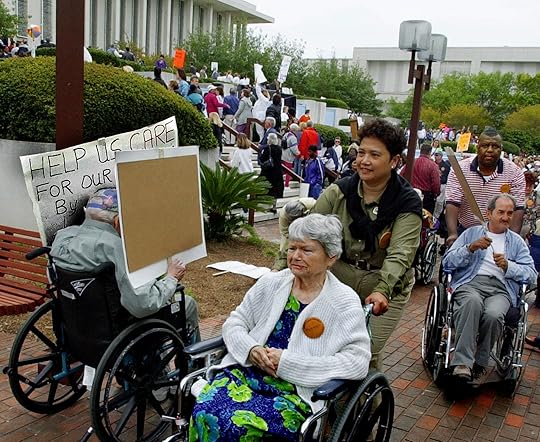
The Secret to Living Longer Is Being Rich, Study Reveals
by Ilana Novick

Can America Ever Cure Its Obsession With Wealth?
by Robert Scheer
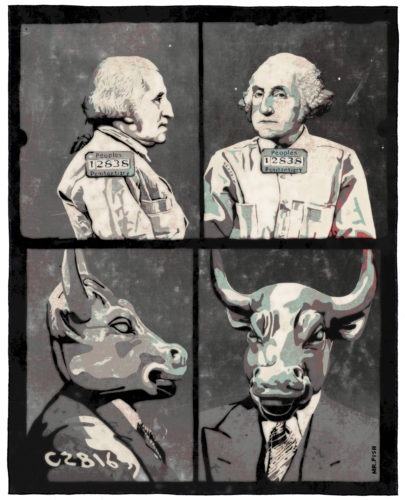
Death by Oligarchy
by Chris Hedges
Gates isn’t the only billionaire who’s worried. JPMorgan Chase CEO Jamie Dimon also has concerns about the rising resentment towards his fellow elites.
“I think you should vilify Nazis,” Dimon told Lesley Stahl, “but you shouldn’t vilify people who worked hard to accomplish things.” Billionaire investor Leon Cooperman, who’s become a fixture on CNBC, recently teared up while complaining about the “vilification of billionaires.”
Why do the feelings of the 600 Americans that constitute our billionaire class suck up so much media attention?
For one thing, billionaires literally own the news. Buying up media companies is a new rite of passage for the ultra wealthy, like the purchase of the Washington Post by Amazon head Jeff Bezos, or TIME by tech CEO Marc Benioff.
They’ll say they’re all about editorial independence, but the truth is billionaire ownership can affect news output. When billionaire Joe Ricketts found out the staff of DNAinfo, a network of city-based news sites he owned, was unionizing, he promptly shut down the entire venture out of spite.
There are more subtle ways in which the rich buy media access. The Gates Foundation, for example, has poured millions in donations into the media over the last several years to raise awareness around the foundation’s philanthropic goals — including its controversial funding of charter schools.
Not all billionaire power is publicly broadcast, however.
In their book Billionaires and Stealth Politics, researchers Benjamin Page, Jason Seawright, and Matthew J. Lacombe document how economic elites have banded together to lobby for extremely conservative policies, like cutting estate taxes, opposing regulations on the environment and Wall Street, and gutting social programs.
Because these moves are highly unpopular, they’ve done this work in the background.
That means there’s a network of billionaires aligned with the Koch brothers, who’ve poured hundreds of millions of dollars into anti-labor policies. And Rupert Murdoch, the media mogul who changed the media landscape with Fox News. And casino magnate Sheldon Adelson, who’s spending his billions shaping U.S. foreign policy.
Their enormous wealth offers them an outlandishly oversized role in our democracy. It’s poisoning both our politics and our media.
So how about a ban on billionaires? Let’s tax away their wealth, but let’s get them off our airwaves, too. Imagine what we’d learn if corporate media didn’t devote entire news cycles to the whims of the rich.
You may not have heard, but for the last several months, the sanitation workers at Republic Services have been fighting for higher wages. “I haven’t had a raise since 2004,” Demetrius Tart told The Guardian. Meanwhile, the company is making a killing from the 2017 tax cuts, and returned more than $1 billion to shareholders through stock buybacks.
The company’s largest shareholder? Bill Gates. Workers took their fight directly to the billionaire, protesting outside a Gates Foundation event in September with signs that read, “Bill Gates treats his workers like garbage.” He ignored them.
Maybe these sanitation workers could get the airtime instead.

The Bolivian Coup Comes Down to One Precious Mineral
Bolivia’s President Evo Morales was overthrown in a military coup on November 10. He is now in Mexico. Before he left office, Morales had been involved in a long project to bring economic and social democracy to his long-exploited country. It is important to recall that Bolivia has suffered a series of coups, often conducted by the military and the oligarchy on behalf of transnational mining companies. Initially, these were tin firms, but tin is no longer the main target in Bolivia. The main target is its massive deposits of lithium, crucial for the electric car.
Over the past 13 years, Morales has tried to build a different relationship between his country and its resources. He has not wanted the resources to benefit the transnational mining firms, but rather to benefit his own population. Part of that promise was met as Bolivia’s poverty rate has declined, and as Bolivia’s population was able to improve its social indicators. Nationalization of resources combined with the use of its income to fund social development has played a role. The attitude of the Morales government toward the transnational firms produced a harsh response from them, many of them taking Bolivia to court.
“The idea that there might be a new social compact for the lithium was unacceptable to the main transnational mining companies.”
Related Articles
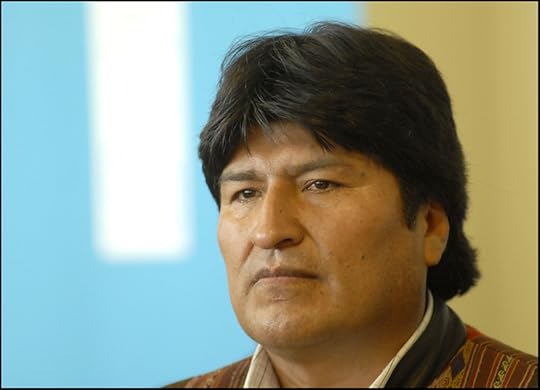
Bolivian President Evo Morales' Removal Denounced as Coup
by

Chile and Bolivia Reports Expose Western Media's Rank Hypocrisy
by

Right-Wing Bolivian Senator Defies Constitution, Declares Herself President
by Jake Johnson /
Chris Hedges's Blog
- Chris Hedges's profile
- 1922 followers



